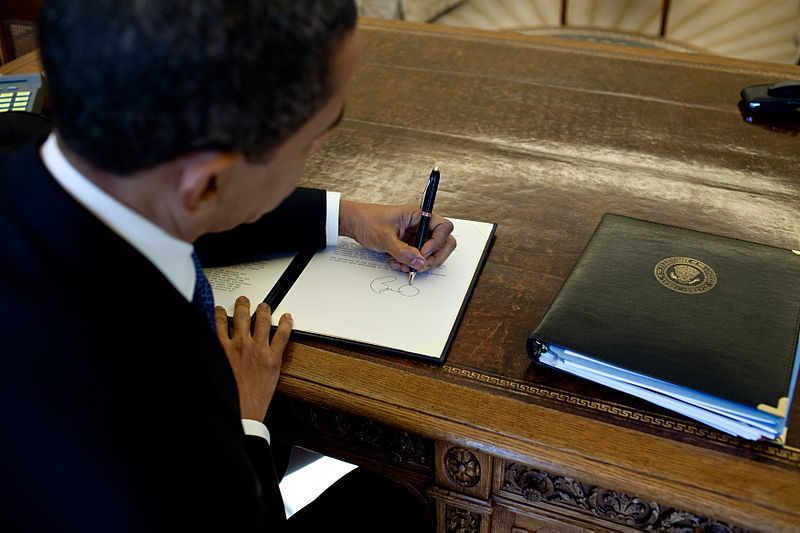
Final regulations for the LGBT Executive Order: no clarity for faith-based organizations
The Department of Labor on December 3, 2014, released the final regulations to implement President Obama’s July 21, 2014, Executive Order banning sexual orientation and gender identity discrimination by federal contractors, subcontractors, and vendors. The regulations simply add those two new protected classes to the existing nondiscrimination rules for federal contracting and thus do not clarify the questions faith-based organizations have.
The Executive Order maintained the religious staffing freedom for federal contractors; a religious organization that considers religion when staffing is eligible to be a federal contractor, subcontractor, or vendor (this exemption was added to the federal rules by President George W. Bush in 2002). But the President refused to include a religious organization exemption from the new nondiscrimination requirements. So religious organizations that participate in federal contracting may consider religion when staffing but may not discriminate on the bases of sexual orientation or gender identity.
What happens when those different categories intersect? Faith-based organizations that consider religion when staffing are seeking staff who are compatible with and exemplify the religious values of the organization: generosity, compassion, justice, and so on, and also the religion’s ethic for flourishing families and relationships. Often that means that the organization has an employee conduct code that restricts sexual activity — by all employees, gay or straight — to man-woman marriage. In making employment decisions consistent with that conduct code, the faith-based organization is just staffing by religion, which is legal under the federal contracting rules, but a job applicant in a same-sex marriage may assert that, instead, the organization is illegally discriminating on the basis of sexual orientation.
The Executive Order did not clarify what happens at this intersection, and neither do the final regulations just released. Many faith-based organizations may consider themselves no longer so welcome in federal contracting, or will fear intrusive (and disruptive and expensive) inquiries by federal officials into their human resources policies and practices, even if in the end they are vindicated.
The Department of Labor’s FAQ document on the regulations does stress the continuing validity of the religious staffing freedom and it notes that special rights come into play if an employee is a “ministerial” employee. But no clarification is offered about how religious staffing fits with the new sexual orientation nondiscrimination requirement.
There will be explanatory webinars, starting almost immediately, and other opportunities for questions and comments to the Department of Labor, during the 120 days before the new nondiscrimination requirements become effective and are applied to new contracts and existing contracts that are otherwise modified. (That 120-day period starts when the final regulations are published, soon, in the Federal Register.)
